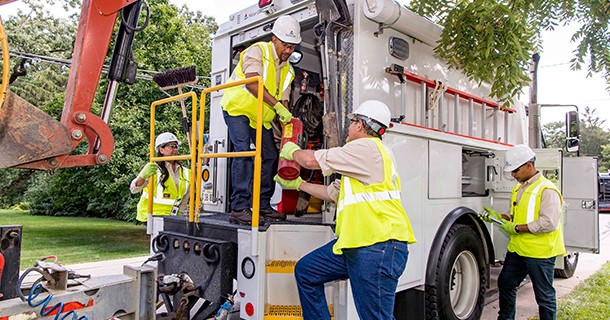Sewer Line Safety for Contractors
Whether you work directly with the installation or cleaning of sewer lines, or indirectly in a related business or in an ancillary capacity, it is important that you have an awareness of this safety issue. You also need to know how to respond should a hazardous condition occur.
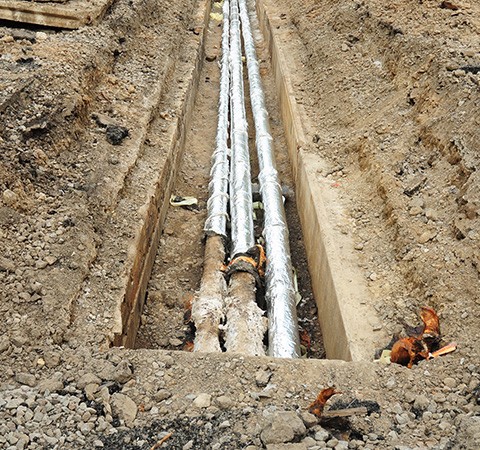
Potential Danger!
The presence of a gas pipe in a sewer line is known as a “cross bore.” A cross bore can remain undetected for months, even years. The typical way they are discovered is when the sewer line becomes clogged and a blockage needs to be removed. While it is common practice to use a mechanical rotary device to root out the blockage, this process could damage the gas pipe that has been bored through the sewer line, resulting in a loss of service and a potentially hazardous leak condition.
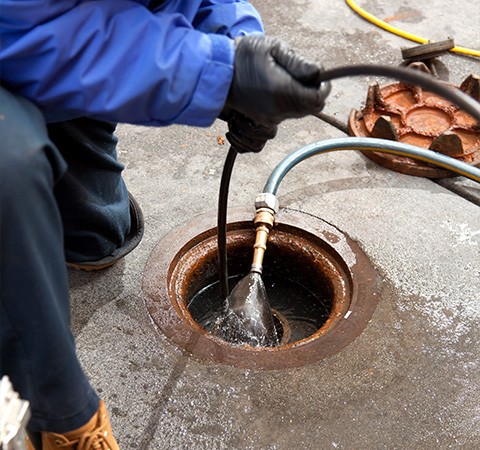
Background
Utilities use a trenchless technology called horizontal directional drilling (boring) to pull cables, conduit and pipe underground. This installation method causes less impact to the surrounding area and minimizes environmental disruption. It also saves time, allowing utility crews to work more efficiently. Before Nicor Gas begins directional drilling, precautionary safety measures are taken to determine the location of all underground facilities, including sewer lines. Unfortunately, there are instances when our gas pipe is inadvertently pulled through existing infrastructure, leaving the opportunity for accidental damage to the gas pipe in the future.
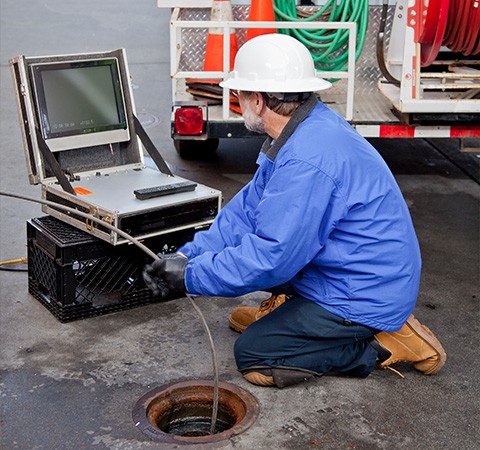
Always Play It Safe
Prior to working on a sewer line, important precautionary steps should be taken to prevent possible damage to the infrastructure:
- Call 811 to have utilities properly locate their underground facilities.
- Use a camera to determine if the sewer line is obstructed by a gas pipe, cable or conduit.
- Ask the resident or business owner if there has been a natural gas line or other utility recently installed or upgraded on the property.
If you discover a natural gas pipe in a sewer line, stop all work immediately, call Nicor Gas at 888.Nicor4U (642.6748) and report it as a natural gas emergency. Be sure to let the customer service representative know that you have discovered a cross bore. We will take the appropriate steps to remove the gas pipe and make the area safe.
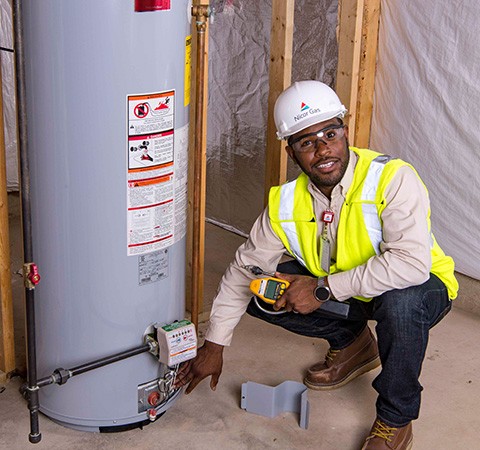
Know the Signs of a Gas Leak – Sight, Sound and Smell
- Should you be working on, or in the vicinity of a sewer line, you need to know the signs of a natural gas leak:
- LOOK for discolored vegetation, blowing dirt or continued bubbling water in the area of a buried gas line.
- LISTEN for a hissing sound.
- SMELL for the distinctive “rotten egg” odor of natural gas.
If you believe you have damaged a gas pipe in a sewer line by pulling, nicking or breaking it:
- LEAVE the area immediately, warning others in the area as you leave. Keep everyone away from the area until emergency assistance arrives.
- AVOID touching anything that may cause a spark. This includes lighters, matches, cigarettes, flashlights, light switches and telephones in the area of the suspected leak. Wait until you are a safe distance away before using your cell phone.
- CALL Nicor Gas at 888.Nicor4U (642.6748) and emergency responders at 911 once you are in a safe place, out of the area of the suspected leak. Stay away until emergency personnel indicate it is safe to return.



